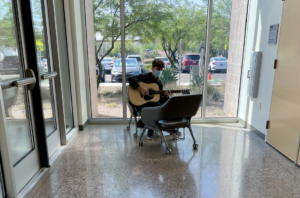What a state with no online options should do
There are still a few states where students can’t all or part of their learning online. Here’s three reasons it makes sense to adopt online learning policies:
- With the push for high common standards including advanced math and science, there simply aren’t enough qualified teachers to fill needs in many communities; high schools will need to offer online courses.
- There’s no more money and won’t be for several years. Online learning can save money and reduce the need for new school facilities.
- Lots of kids are simply bored; the digital natives do everything else online, they want to learning online.
There are three preconditions that need to be in place
- Money must follow the student
- Performance-based progress with no seat-time requirements (or at least a simple waiver)
- Simple waiver process for modified staffing (ie teaching assistant onsite, teacher online)
There are three inexpensive ways for a state to get started
- Invite iNACOL.org to help craft policies
- Invite proposals from online providers and issue three statewide charters or contracts (and allow districts to enroll students statewide)
- Encourage students that have demonstrated college-ready competence to begin taking online college courses
Three more expensive (but potentially grant supported) things a state can do include:
- License popular tools and content statewide (instead of adopting textbooks)
- Launch a state run virtual school (with investment of >$5m)
- Issue an RFP for school models that blend online and onsite learning for turnarounds & restarts; create stable of certified vendors that can be matched with schools in need of improvement
And finally, here’s three things to avoid:
- Limiting enrollment by geography (e.g. CA virtual schools stop at county lines)
- Paying double for students (by making a state virtual school a budget line item or protecting districts from loss of enrollment)
- Developing content








0 Comments
Leave a Comment
Your email address will not be published. All fields are required.